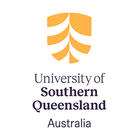Master of Science (Mathematics and Statistics)
Master of Science (Mathematics and Statistics)
Overview UniSQ’s Master of Science (Mathematics and Statistics) is ideal for graduates from any discipline who are looking to develop their mathematics/statistics knowledge and skills. Even if you haven’t studied in some time, this degree will provide you with an in-depth education in mathematical and/or statistical techniques and problem solving…
Categories
COURSE DESCRIPTION
Overview
UniSQ’s Master of Science (Mathematics and Statistics) is ideal for graduates from any discipline who are looking to develop their mathematics/statistics knowledge and skills. Even if you haven’t studied in some time, this degree will provide you with an in-depth education in mathematical and/or statistical techniques and problem solving skills. The degree is completely available online, but courses are also available on-campus, meeting study requirements for international students.
Examine the fundamentals of theoretical and applied statistics, mathematical modelling and operations research, and computing and coding skills. This degree incorporates practical methods for undertaking analysis, modelling and evidence-based, data-driven decision-making.
If you already have a bachelor degree or equivalent experience and are looking to expand your knowledge into the area of maths and statistics, the Master of Science (Mathematics and Statistics) is the degree for you.
You will have the opportunity to decide between two different pathways of study in your masters degree:
- Research Project track — the Research Project track equips you with research skills and allows you to develop a research thesis through a project in your chosen disciplinary application area.
- Research Training track — the Research Training track allows you to develop your research capability and gain specialised cognitive and technical skills to prepare for a professional career in science.
Career outcomes
- Graduates with extensive experience in mathematics and/or statistical knowledge and skills are in high demand in a variety of industries, including: Public Administration and Safety; Financial and Insurance Services; Professional, Scientific and Technical Services; and Education and Training.
- Would you like to work for the Australian Bureau of Statistics, one of the ‘big four’ banks, an insurance company, in computing, logistics, engineering or finance? Graduates of this degree are in high demand in a variety of industries.
- Specific jobs include work as a Mathematician, Operations Manager, Financial Analyst, Systems Analyst, Supply Chain Analyst, Business Systems Analyst, Data Mining Researcher, Speech Processing Researcher and Market Researcher.
REQUIREMENTS
3-year Bachelor degree from an Australian university or equivalent.
or
equivalent professional work experience, as determined through the Credit and Exemption procedure.
have knowledge of mathematics at least equivalent to that found in MAT1102 Algebra and Calculus I
IELTS (Academic only) – Overall minimum score of 6.5 and no individual band score of less than 6.0; TOEFL (internet based) – Overall minimum score of 90 and no individual skills score of less than 20; Pearson (PTE Academic) – Overall score of 58 and no individual Communicative Skills score of less than 58; Cambridge C1 Advanced C2 Proficiency – Overall minimum score of 185 with no less than 185 in each skill.
EDUCATIONAL INSTITUTION
The University of Southern Queensland (UniSQ) is Australia’s leading regional university. With a strong focus on research, teaching and positive student experience, we provide high-quality flexible programs producing some of Australia’s highest-paid graduates4. Our students benefit from flexible options of on-campus studies, delivered across three campuses in Queensland, Australia, online and multimodal study options and through trusted national and international education partners. UniSQ is ranked in the top 400 universities2 and 58 young universities worldwide3. UniSQ is also rated as a QS 5 Star university and ranked 5/5 stars in Australia for graduate employment and graduate starting salaries1.1 QS Stars World University Rankings, 20242 Times Higher Education World Universities Rankings, 20243 Times Higher Education Young Universities Rankings, 20244 QILT Graduate Outcomes Survey, Postgraduate Results, 2021-2022




